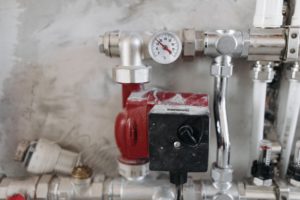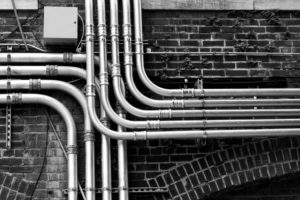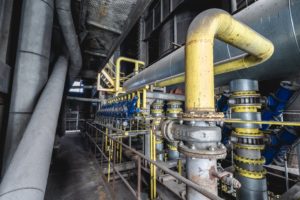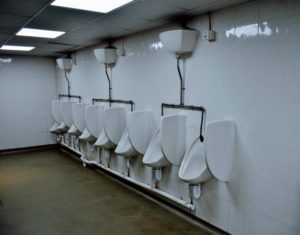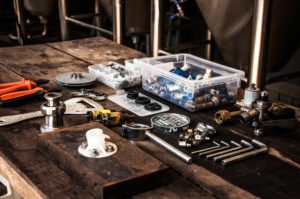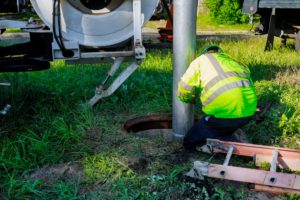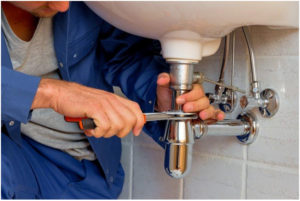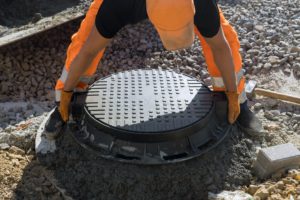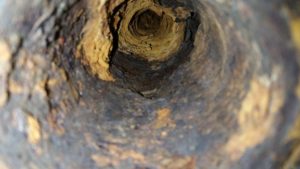Introduction
When it comes to running a successful business, few things can disrupt the day-to-day operations like a sudden plumbing emergency. From a burst pipe flooding your reception area to a backed-up toilet in your customer restroom, these crises demand immediate attention and swift action. Not only can they cause significant property damage, but they can also lead to lost revenue, health hazards, and a tarnished reputation if not handled promptly and effectively. Understanding what to do in these situations is crucial for any business owner or facility manager. This guide aims to prepare you for such unforeseen events, ensuring that a plumbing problem doesn’t turn into a plumbing catastrophe.
Identifying Common Plumbing Emergencies
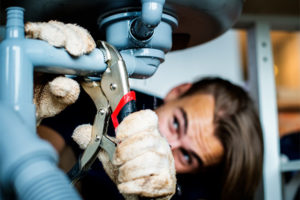 Recognizing what constitutes a plumbing emergency is the first step in effective crisis management. Some common issues that businesses often face include:
Recognizing what constitutes a plumbing emergency is the first step in effective crisis management. Some common issues that businesses often face include:
- Burst Pipes: These can lead to extensive water damage and are often caused by freezing temperatures or aging infrastructure. Signs include a sudden drop in water pressure, water stains on walls, or pooling water.
- Severe Leaks: Whether from a faulty faucet, broken pipe, or compromised appliance connections, leaks can quickly escalate, causing damage to floors, walls, and essential equipment.
- Clogged Drains and Toilets: A frequent issue in commercial settings, especially those with high public usage. Overflowing or backed-up drains can create unsanitary conditions and disrupt normal business operations.
- Sewer System Backup: Perhaps the most distressing, these can lead to health hazards and require immediate professional attention. Indicators include multiple drain clogs, bad odors, and gurgling sounds from toilet bowls.
Immediate Steps to Take in a Plumbing Emergency
When faced with a plumbing emergency, taking immediate action can help mitigate damage and pave the way for a smoother resolution:
- Shut Off the Water: The first step in any water-related emergency is to stop the flow. Locate and turn off the nearest water valve. In cases of major leaks or bursts, you may need to shut off the main water supply to the building.
- Assess the Situation Safely: Quickly assess the area for safety hazards such as electrical risks or structural damage. Avoid entering areas where the water may have reached electrical outlets or appliances.
- Alert the Necessary Parties: Inform your staff and customers of the issue and, if necessary, evacuate the affected area. This ensures everyone’s safety and allows for easier access for repair work.
- Document the Damage: If it’s safe to do so, take photos or videos of the damage for insurance purposes. This documentation can be invaluable when filing a claim.
How to Minimize Damage Before Help Arrives
Once you’ve taken the initial steps to handle a plumbing emergency, it’s vital to minimize further damage while waiting for professional help. Here are some effective strategies:
- Contain the Water Spread: Use mops, towels, or buckets to manage the water spread. If the leak is from the ceiling, place a bucket underneath to catch drips and move any furniture or equipment out of harm’s way.
- Ventilate the Area: Open windows or use fans to ventilate the affected area. This helps in reducing moisture accumulation, which can lead to mold and mildew growth.
- Turn Off Electrical Appliances: If water has spread near electrical appliances or outlets, immediately turn off the electricity from the main breaker for safety.
- Protect Important Documents and Inventory: If possible, move important documents and inventory to a dry area to prevent water damage.
Choosing the Right Emergency Plumbing Service
Selecting an efficient and reliable plumbing service is crucial in an emergency. Here are key factors to consider:
- 24/7 Availability: Emergencies don’t wait for business hours. Choose a plumbing service that offers round-the-clock response.
- Experience with Commercial Plumbing: Ensure the service has experience in handling commercial plumbing systems, which can be more complex than residential ones.
- Quick Response Time: Every minute counts. Opt for a service known for its quick response to minimize damage and downtime.
- Licensed and Insured: Verify that the plumbing service is fully licensed and insured. This protects your business in case of any further damage during repair work.
The Role of Professional Plumbers in Crisis Resolution
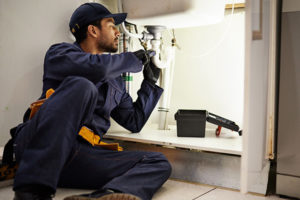 Professional plumbers play a critical role in effectively resolving plumbing emergencies. Here’s what they bring to the table:
Professional plumbers play a critical role in effectively resolving plumbing emergencies. Here’s what they bring to the table:
- Expert Assessment: They can quickly diagnose the issue and determine the best course of action, thanks to their expertise and experience.
- Proper Tools and Equipment: Professional plumbers come equipped with the necessary tools and technology to fix the problem efficiently.
- Long-term Solutions: Instead of just a temporary fix, they focus on providing solutions that prevent future issues.
- Compliance and Safety: They ensure that all repairs comply with local codes and regulations, prioritizing the safety of your business premises and its occupants.
Preventative Measures to Avoid Future Plumbing Emergencies
While immediate responses to plumbing emergencies are crucial, preventative measures are key to avoiding such situations in the first place. Here’s how you can proactively protect your business:
- Regular Inspections and Maintenance: Schedule routine plumbing inspections and maintenance with a professional service. Regular checks can identify and resolve minor issues before they escalate into emergencies.
- Upgrade Aging Plumbing Systems: If your building has old pipes and fixtures, consider upgrading them. Newer systems are less prone to failures and can be more efficient.
- Train Your Staff: Educate your employees on basic plumbing maintenance and the importance of reporting issues promptly. Awareness can go a long way in preventing major problems.
- Install Leak Detection Systems: Advanced leak detection systems can alert you to potential problems early, allowing for immediate action to prevent damage.
Conclusion: The Value of Being Prepared
Dealing with plumbing emergencies in a commercial setting is about quick responses, effective management, and forward-thinking prevention. By understanding the immediate steps to take, knowing how to select the right plumbing service, and implementing preventative strategies, you can safeguard your business against the disruptions and damages caused by plumbing crises. Remember, the key is not just to react swiftly but also to prepare thoroughly. Regular maintenance, staff training, and staying informed about your building’s plumbing health are essential practices. A reliable plumbing partner, like Action Plumbing, can be an invaluable asset in both crisis management and preventive care. Stay prepared, and ensure that a plumbing problem never becomes a plumbing disaster for your business.
